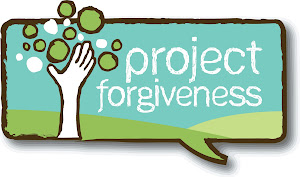When I heard about National Jewish Outreach Program (NJOP) Project Forgiveness, I expressed my interest in supporting the program. The Jewish tradition places a unique emphasis on forgiveness between human beings. As NJOP hopes to inspire us to consider forgiveness during the days leading to the Jewish New Year, I welcome the opportunity to take part in this project and help shed light on how the path to forgiveness is also the path to the emotional freedom we all deserve.
Relationships are central to our mental health and have the potential to sustain or drain us emotionally, spiritually and physically. If you are struggling with forgiveness, you understand the challenge it can be to grant or to request forgiveness.
For those seeking to grant forgiveness, consider the following: often we feel we cannot forgive unless we understand the reason we were wronged. The reality is, we do not have understand why someone did what they did in order to forgive. Remember, forgiveness does not excuse anyone’s behavior, rather it allows the forgiver to put the past where it belongs – behind us. We forgive, not for the wrong-doer, but for ourselves.
The same is true for those requesting forgiveness. When we apologize, we let go of the ego. Forgiveness must be requested with humility, understanding that the request is not about us but about the person wronged. Part of asking for forgiveness is taking full responsibility for our actions and in doing so, we often begin to forgive ourselves as well.
Both forgiving and apologizing are closely linked to independence, self-respect and emotional freedom. I encourage those visiting the site to send a note or a postcard to NJOP Project Forgiveness and take that first step towards those who have wronged you or to those whom you have wronged. It is my hope that Project Forgiveness will lead to personal, emotional freedom for all who take part.
-- David J. Lieberman
Project Forgiveness 2009
Welcome to Project Forgiveness. Here, we collect and post videos, emails, postcards and other expressions of regret from those who seek to forgive and from those who wish to express regret.
In the days leading up to the Jewish New Year, we offer this forum as a first step. It is our hope that sharing thoughts of forgiveness online will translate into actual forgiveness between individuals in the days to come.
How to participate? It's simple. Send us your "sorry" (upload a video to youtube and send us the link) or email us at: forgiveness or mail to:
Project Forgiveness
WPR
P.O. Box 5134
Bergenfield, NJ 07621
We accept postcards, emails, powerpoint, art, music, video and more!
Welcome to Project Forgiveness. Here, we collect and post videos, emails, postcards and other expressions of regret from those who seek to forgive and from those who wish to express regret.
In the days leading up to the Jewish New Year, we offer this forum as a first step. It is our hope that sharing thoughts of forgiveness online will translate into actual forgiveness between individuals in the days to come.
How to participate? It's simple. Send us your "sorry" (upload a video to youtube and send us the link) or email us at: forgiveness or mail to:
Project Forgiveness
WPR
P.O. Box 5134
Bergenfield, NJ 07621
We accept postcards, emails, powerpoint, art, music, video and more!
August 1, 2006
Subscribe to:
Post Comments (Atom)



1 comment:
What if your friend has asked for forgiveness, but still continues to do the same act, saying that this is the way he must act (obviously not anything having to do with religion)?
Post a Comment